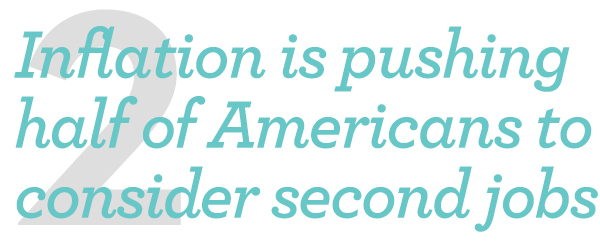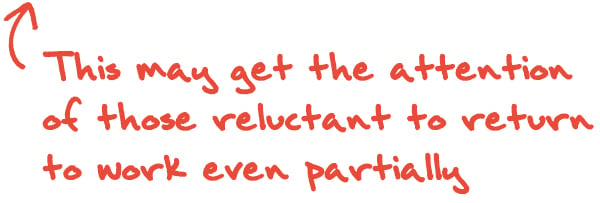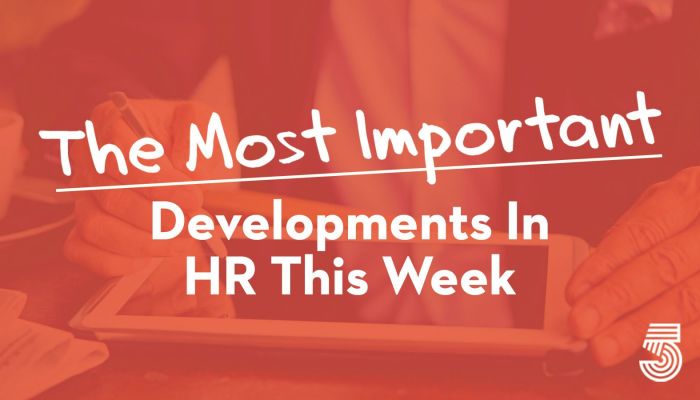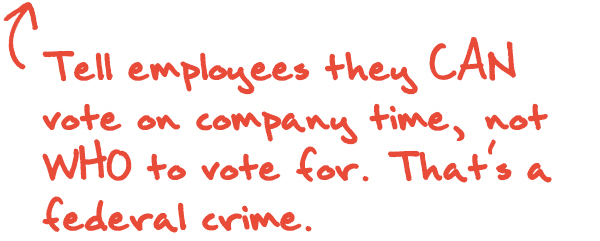The M.I.D., as we call it, is curated by our editorial team from more than 50 news sources. Like a lot of good ideas, this started as something I wanted for myself. If I can’t read everything, I at least want to stay abreast of the most important developments.
This week in HR, it was time to retire 9-to-5, Americans sought second jobs to combat inflation, proximity bias was called out, apparently HR lost the trust of employees, and we got a voting heads-up.


More than 40 years after Dolly Parton sang about it, the “9 to 5” job is on life support. Gone are the days when workers stayed in the same profession — and often at the same company — until retirement. Today, living the dream doesn’t mean earning a pension after 30 years; it’s life-hacking your way to a four-hour workweek, getting commission as an influencer, or logging in from the beach with your laptop and a Wi-Fi hotspot. The Great Resignation is inspiring people to reimagine what work should look like, but workers aren’t a monolith. For some, the end of the 40-hour week is about working less; for others, it’s about working differently. Glassdoor


Stubbornly high inflation is pushing more than half of American workers to consider taking a second job, according to a new study from technology company Qualtrics. The survey of more than 1,000 adults with full-time jobs found that 38% have looked for a second job, while another 14% plan to do so, the company said. That means “more than half of working Americans have considered holding multiple jobs to pay for their living expenses,” the company said in a statement. Interest in gig work and so-called side hustles has picked up during the past year as inflation soared to a 40-year high. At the same time, wage growth hasn’t kept pace, which translates into dwindling purchasing power for workers. That’s prompted some to cut back on everyday expenses, while others are planning to trim their holiday spending this year, according to recent MassMutual research. CBS News


About 96% of executives say that they notice and value employees’ contributions made in the office far more than work done from home, according to a report from workplace platform Envoy. Proximity bias — the idea that leaders favor employees who are in the office more often for promotions and pay raises — is unquestionably real, and as more companies return to the office, the problem is “going to get worse,” Annette Reavis, Envoy’s chief people officer, tells CNBC Make It. Leaders have the most power to reduce proximity bias by introducing more inclusive practices that consider remote employees’ capabilities and needs and being mindful of their employees’ contributions no matter where they work, Reavis says. She encourages managers to set equitable, transparent performance and salary review processes anchored on clear goals and metrics, instead of behavior, that both in-person and remote employees can achieve. CNBC


The way most Human Resources departments work just isn’t working for employees. Our latest study of 993 employees reveals that when they have concerns — whether it’s how they’re being treated by their manager or uncivil behavior from a peer — they would rather reach out to most anyone before turning to someone in HR. Respondents said they fear their HR leader doesn’t have the power to influence change and, even if they did, the needs of the company would take precedent. But what can be done? How can the HR team rebrand from one that toes the company line to one that puts employees — and their concerns — first? When employees view HR as more than compliance officers and instead as coaches, mentors, and mediators, they will begin to trust in a system that advocates for their needs first and foremost. HBR


Even with the mid-term elections right around the corner on Nov. 8, it’s still not too late for employers to brush up on laws and regulations relating to the voting rights of employees. Deidra Nguyen, a San Diego-based shareholder at Littler, the world’s largest employment law firm representing management, says some critical questions include: What time off do you need to give employees? Is it paid or unpaid? And what about employees’ other political activities, beyond voting? “It’s also important to remember there are many variations and nuances to each jurisdiction’s laws,” she explains. “Employers should be sure to consult the applicable laws in every state and locality where their employees vote to ensure compliance with state and local requirements.” Nguyen offers several areas important to employers when it comes to workforce voting rights, including: voting leave, polling activity, and nonpartisanship. HR Executive










